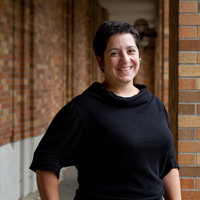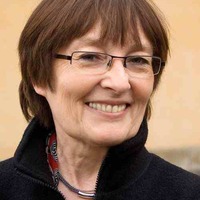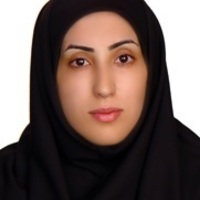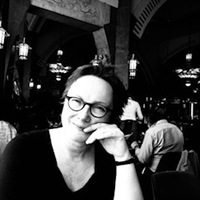
Nicole Robert
My research is centered around the constructions of race, gender and sexuality in U.S. history museums. I am developing a theoretical model that reframes museological practice in addressing historical exclusions from museum narratives. I call this theory Critical Feminist Museology. In support of this work, I study queer theory, public scholarship, chicana feminist theory, digital humanities, black cultural studies and pedagogical strategies for both formal and informal learning environments. I enter this work with an M.A. in Museology and several years of experience in museum practice.
Supervisors: Michelle Habell-Pallan, Sasha Welland, Kris Morrissey, and Amanda Swarr
Supervisors: Michelle Habell-Pallan, Sasha Welland, Kris Morrissey, and Amanda Swarr
less
Related Authors
J. R. Latham
Deakin University
sandra ponzanesi
Utrecht University
Shams Quader, Ph.D.
Dalhousie University
Eva Silvén
Nordiska museet
Rachel Gnagniko
Conservatoire National des Arts et Métiers
Ana Balona de Oliveira
Universidade Nova de Lisboa
Natasa Urosevic
University of Pula, Croatia
Mahboube HajHoseini
University of Tehran
InterestsView All (11)










Uploads
Papers by Nicole Robert
identity-based exclusion within museum exhibits, programs, and collections. Considering the diversity of race, ethnicity, gender, and sexuality in our communities, including the stories of all the identities that make up our communities
has proven to be a challenge. The idea that identities do not operate alone but intersect with each other in dynamic and complex ways—that identities are intersectional—presents new possibilities for solving the challenges of identity-based inclusion. This article briefly introduces the foundations of
intersectional theory and how this theory addresses challenges faced by museum professionals. Specific examples of how this critical feminist approach might function in museum spaces are presented. Building on these examples, this essay investigates the practical possibilities for addressing the challenges of identity-based inclusion in museum work.
identity-based exclusion within museum exhibits, programs, and collections. Considering the diversity of race, ethnicity, gender, and sexuality in our communities, including the stories of all the identities that make up our communities
has proven to be a challenge. The idea that identities do not operate alone but intersect with each other in dynamic and complex ways—that identities are intersectional—presents new possibilities for solving the challenges of identity-based inclusion. This article briefly introduces the foundations of
intersectional theory and how this theory addresses challenges faced by museum professionals. Specific examples of how this critical feminist approach might function in museum spaces are presented. Building on these examples, this essay investigates the practical possibilities for addressing the challenges of identity-based inclusion in museum work.